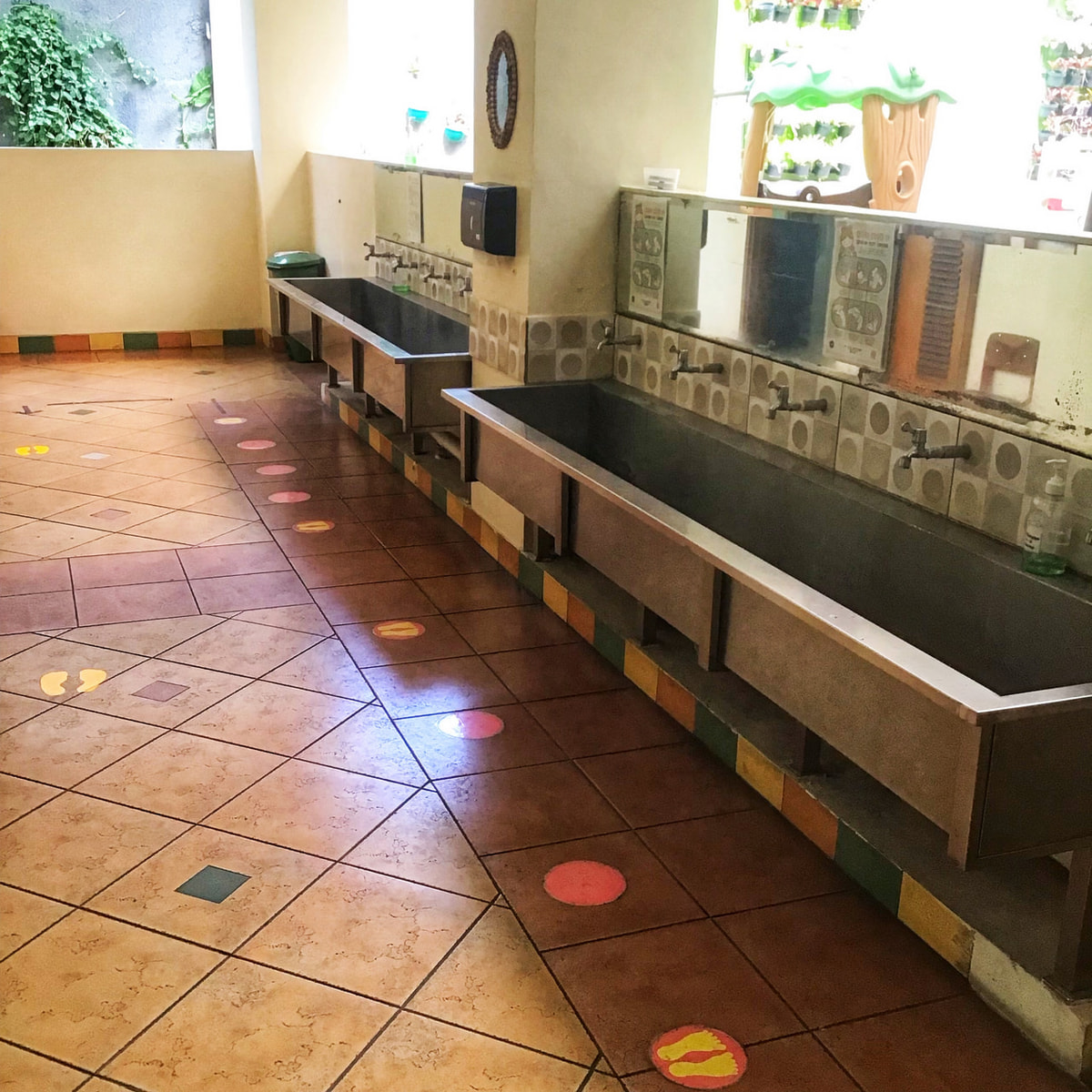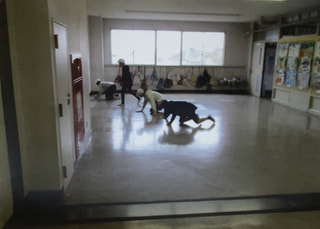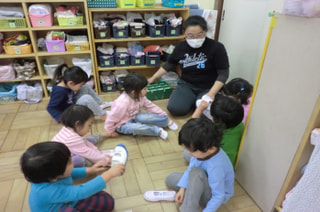Other languages : Arabic
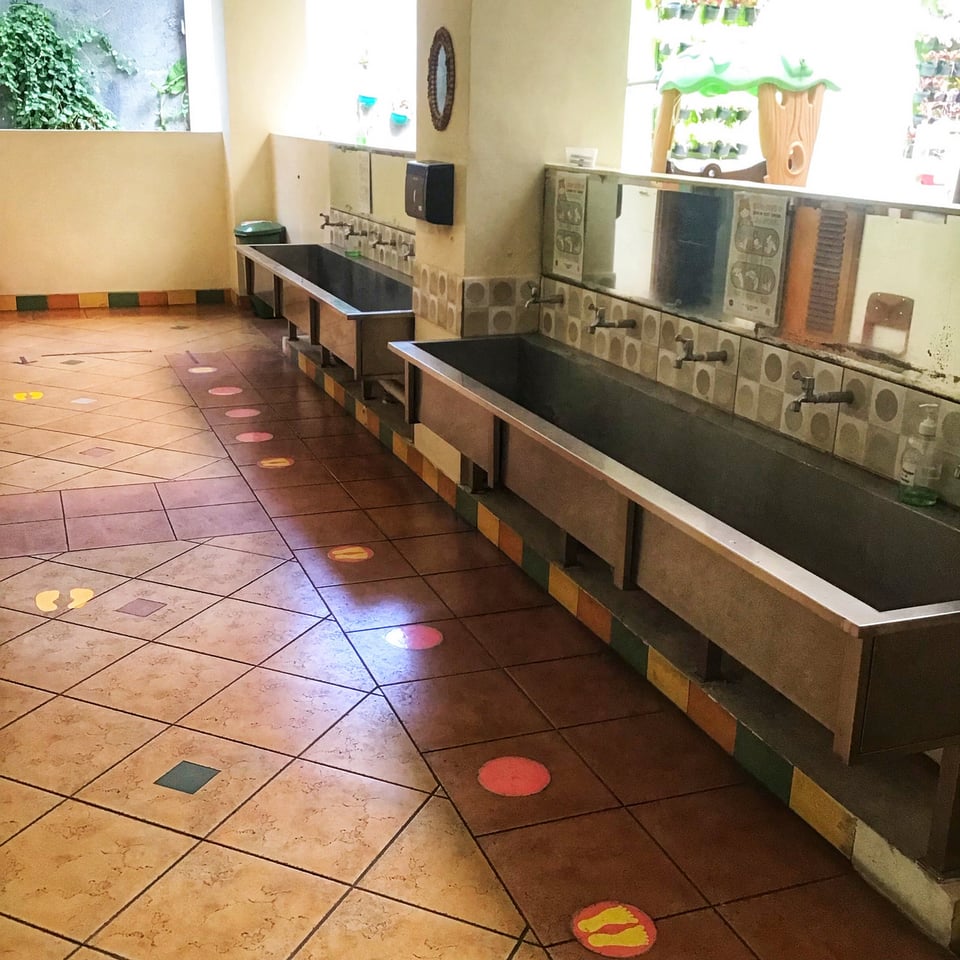
When the break time came, the children of the Santo Yusup Kindergarten 2 were so excited. They rushed to the washroom. There, they enjoyed playing with soap bubbles, splashing water on each other's faces or bodies, then running back to the class to quickly eat lunch.
When the janitor was about to clean the handwashing area, she found the liquid soap in the bottle was empty, water pooled in the sink and splashes of water were scattered on the floor. She then told this to the principal and teachers. The teachers also said that they also found some of the children's clothes were wet.
The next day, the children were surprised by the presence of a janitor who told her work and her findings about how messy the handwashing room was. The janitor then explained how to use a soap bottle, adjust the water tap and dry with a hand towel. After that, the teacher invites the children to imagine the janitors’ job if the hand washing activities are not undertaken orderly. The teacher also invites children whose clothes are wet to reflect. From there, the teacher engages the children to have class discussions.



Target grades:
Activity Categories:
Time:
Kindergarten, Elementary School
Hand washing
10-15 minutes a day
![]()
Aim
Through class discussions, children will learn how to organize the flow, take roles and cooperate in hand washing activities; reflect on the cleanliness and orderliness of hand washing activities; and appreciate and support the role of janitors.
![]()
Teaching Materials
-
Hand washing equipment: Provided by school such as bottles of soap, hand wipe, and hand washisng room
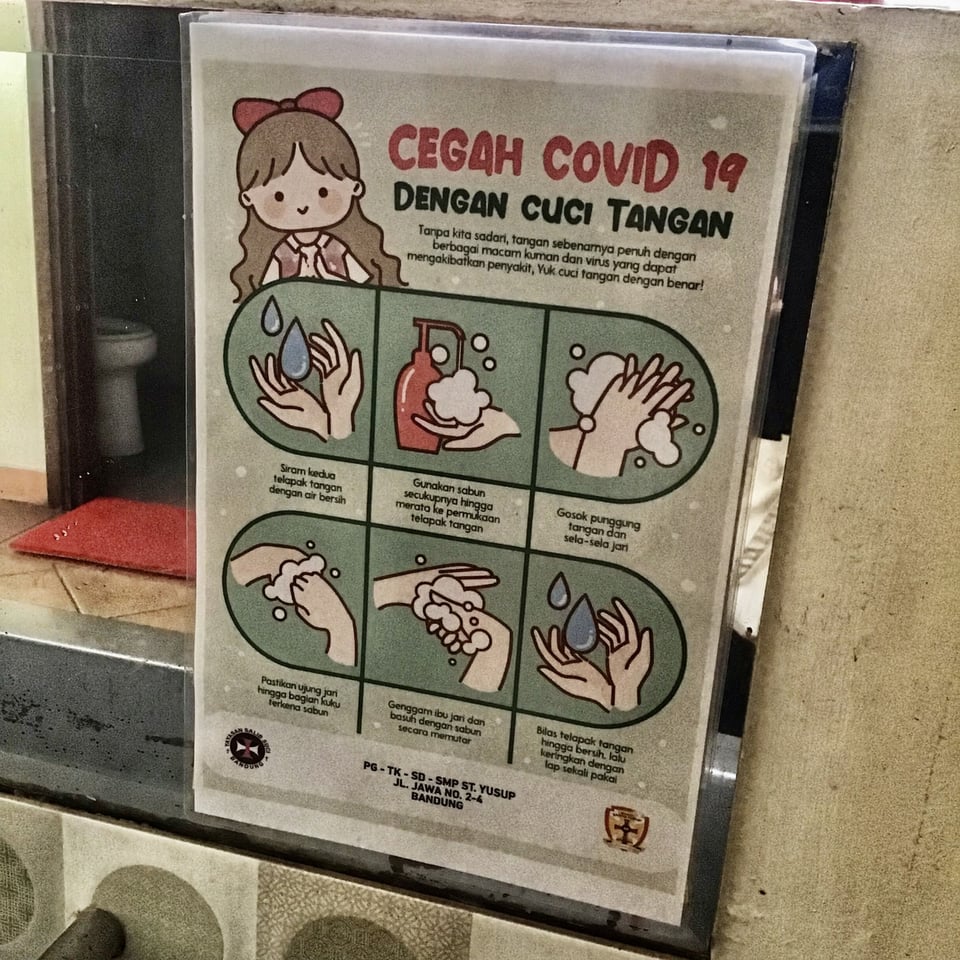
-
Class discussion tools: E.g: paper, mini white board, sticky notes, pens/marker.
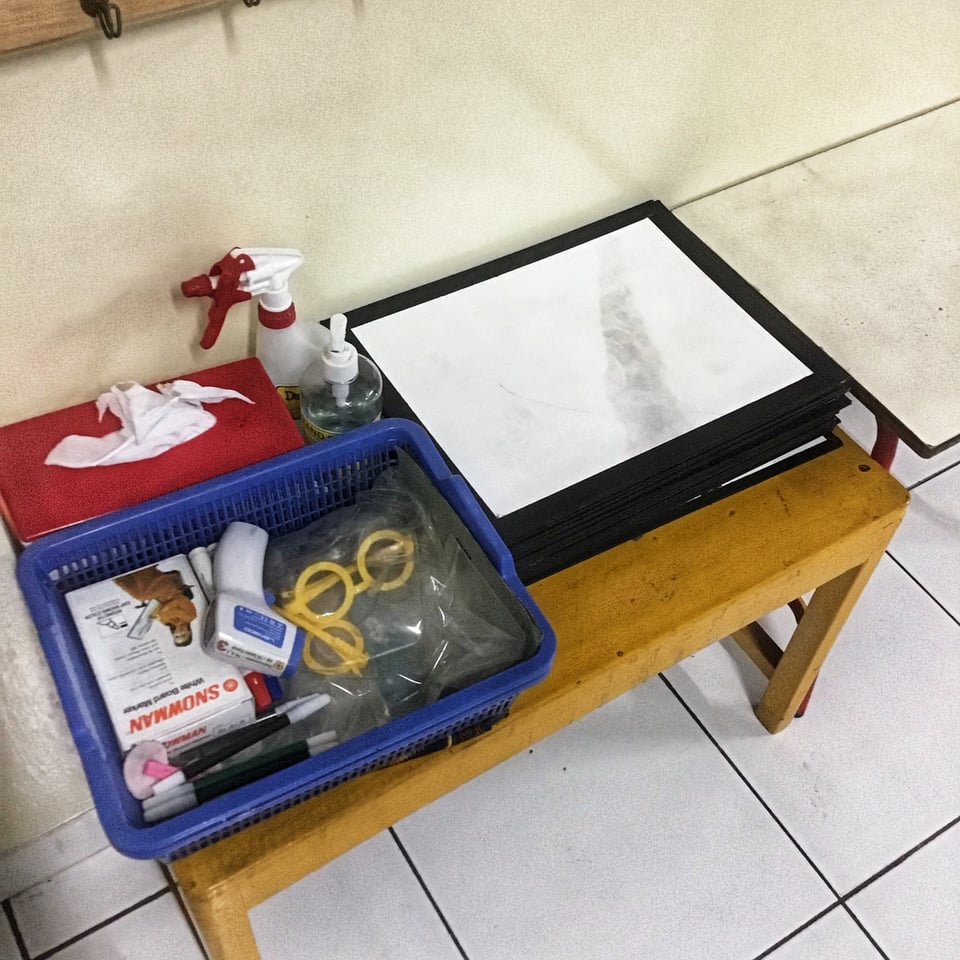
Class discussion protocol: Children initiate it by designing ways of distributing roles, ordering work flow and facilitating class reflection
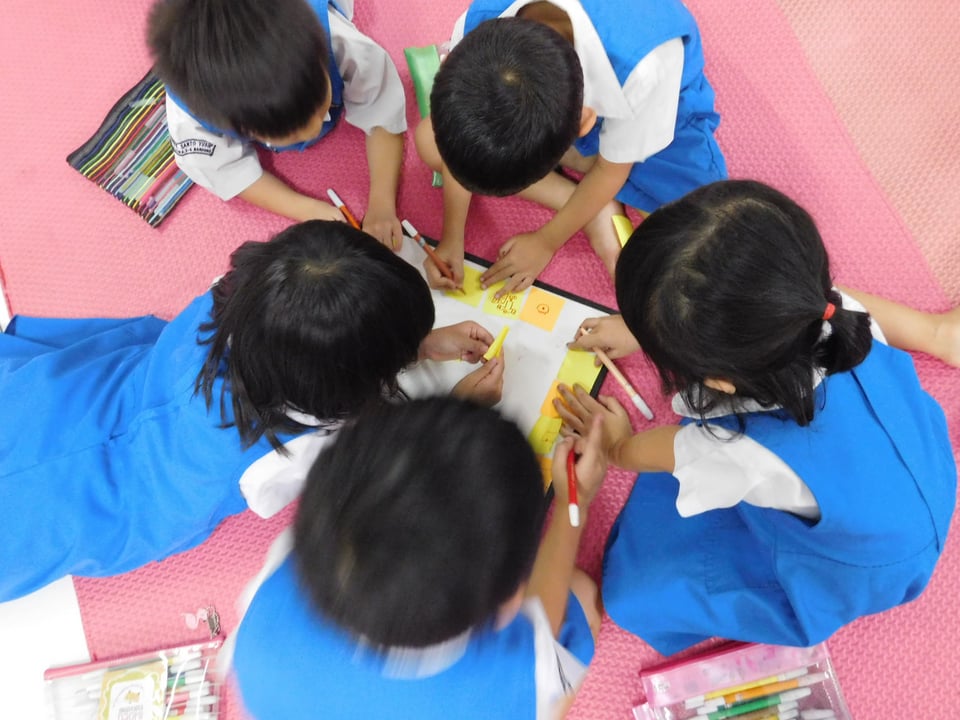
Community engagement: Janitor as ‘guest teacher’ to share their role in the school
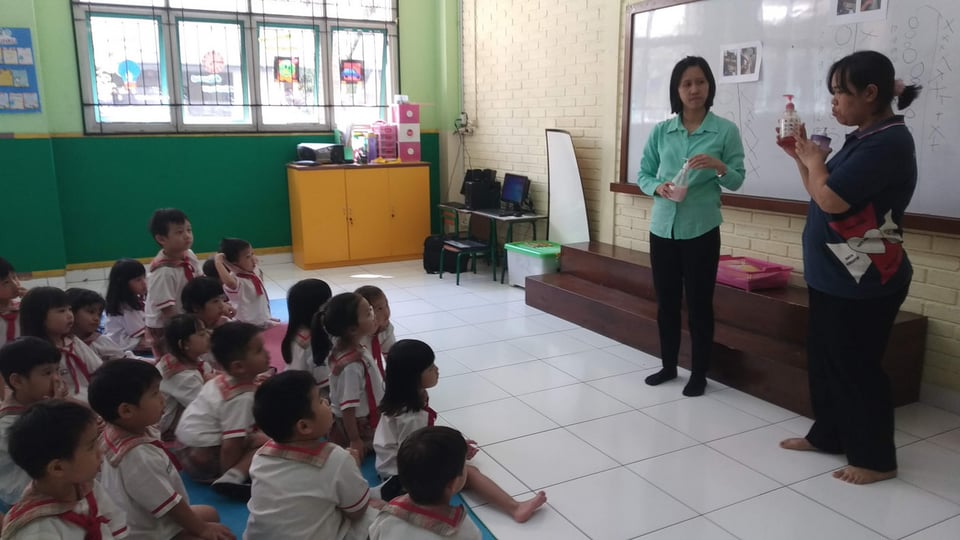
![]()
Implementation Procedures
The teacher leads class discussions by inviting children to reflect that cleanliness, tidiness and orderliness do not only applicable in class, but also when washing hands. From there, children can picture the flow of hand washing activities from which children map out several roles:
- Arrange queues in class
- Holding the soap bottle
- Arrange queues at the hand washing room
- Set the hand lap queue
- Monitor the movement of children.
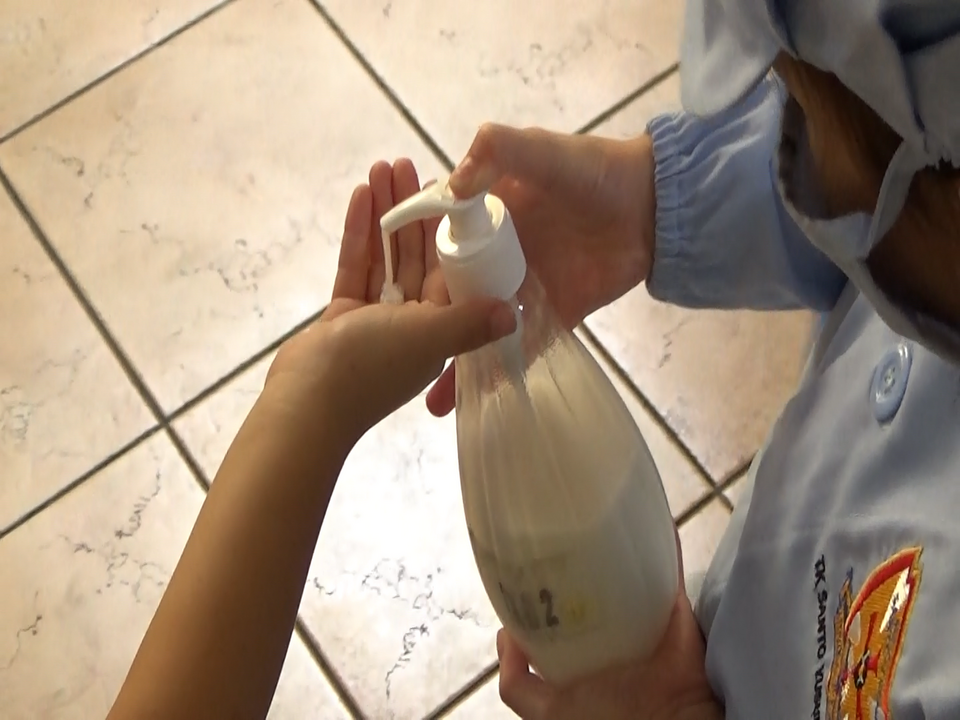
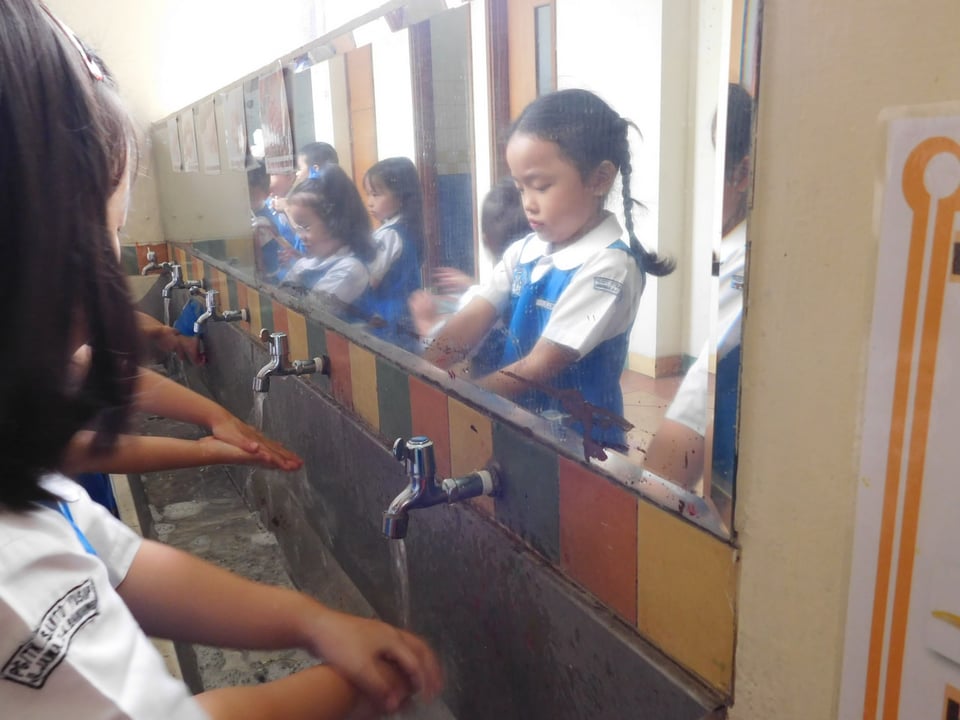
Through this unified role, the children began to learn how to keep hand washing fun and orderly.
![]()
Reference Data
Related article
Previous
Let’s share roles for our clean and comfy class
Next
MyMission : Make your home feel like school

